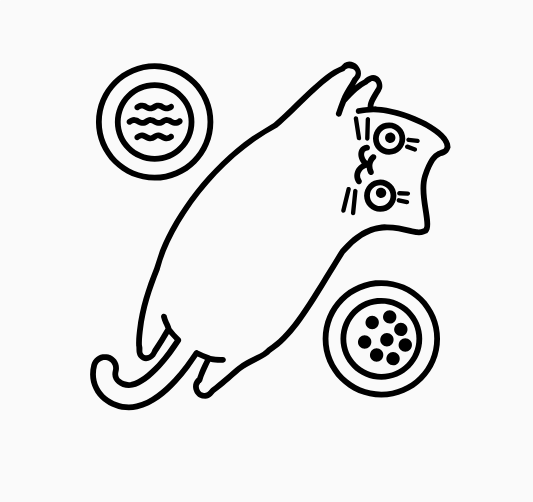https://github.com/jkone27/cat
C# abstract types
https://github.com/jkone27/cat
either either-monad maybe maybe-monad net45 netstandard option railway-oriented-programming result rop
Last synced: 4 months ago
JSON representation
C# abstract types
- Host: GitHub
- URL: https://github.com/jkone27/cat
- Owner: jkone27
- License: mit
- Created: 2018-08-01T08:17:56.000Z (about 7 years ago)
- Default Branch: master
- Last Pushed: 2019-06-13T21:16:20.000Z (over 6 years ago)
- Last Synced: 2025-06-12T19:36:18.505Z (4 months ago)
- Topics: either, either-monad, maybe, maybe-monad, net45, netstandard, option, railway-oriented-programming, result, rop
- Language: C#
- Homepage:
- Size: 75.2 KB
- Stars: 0
- Watchers: 2
- Forks: 0
- Open Issues: 3
-
Metadata Files:
- Readme: README.md
- License: LICENSE
Awesome Lists containing this project
README
# CAT
[](https://github.com/jkone27/cat/issues)
C# abstract types - dotnetstandard 1.0
*- Inspired by FP, F# lang and [ROP](https://fsharpforfunandprofit.com/rop/) -*

## Why Cat?
This small library with no dependencies at all (except dotnetstandard) was born from the interest of having maybe/option and
result/choice types in C#, without having to reference bigger library, and in a sort of "simplified" way. So it's just some interfaces, implementations and a few handy extension methods, you are welcome for contributions and filing/spotting issues!
## Option
Simulates a **Maybe/Option** type with generics and interface inheritance. `IOption` exposes bool property `.IsSome` .
`Some` and `None` both implement `IOption`. I kept the generic constraint on `None` because
I think it can anyway help the compiler figure out and not mix up different "nones".
## Result
Simulates **Choice/Either** type via generics and interface inheritance.
### Result.Strict
Strict version has more static "strictness", meaning you need to provide more type constraints, but then type inference will work its magic out when possible. `IResult` exposes `bool .IsSuccess`, `TOk .AsSuccess` and `TError .Error`.
You will get a runtime exception if you try to access `.Error` on a `Success` and `.AsSuccess` on a `Failure` instance .
### Result.Loose
Loose is more dynamic, skipping some typechecks, it's a light-weight version,
but be aware of your types, it is more likely to throw at runtime for invalid casts.
`IResult` exposes `bool .IsSuccess` and is implemented by `Success` and `Failure`. You will need to cast or make use of the "as" operator when converting back to the concrete type from `IResult`, thus providing the generic type constraint.
## Then
Both option and result types were given a `.Then` extension method, which in a way (for the little I know) emulates the monadic
**bind** operator, making available the "unwrapped" result to the next computation, or just returning to the end of the "pipeline" if
the option is `None`, or if the result is `Failure`.
## ThenLift
Results types supports `.ThenLift` method for cases where the next step in the pipeline might want to return an `IResult/IResult` too, it's not wrapped internally, that's why I named it Lift: is going from a type `T` to a lifted-wrapped type `W`. If you try to pass an `IResult` returning function to a `.Then` method for the Loose type, as a continuation, it will throw you an `ArgumentException` "use ThenLift instead!".
### Status
[](https://travis-ci.org/jkone27/cat)
#### CatCat
https://www.nuget.org/packages/CatCat/
## Usage
### Option
Here is some basic usage of the `IOption` type. Please note that `null` references, as well as `Nullable` where `T` is a value type and `null` strings, are all converted into `None`.
```cs
var r = "not null".ToOption()
.Then(z => "hello")
.Then(x => "1")
.Then(x => Int32.Parse(x) as int?)
.Then(x => DateTime.Now)
.Then(x => null as string);
if (!r.IsSome)
{
Console.WriteLine("r is None");
}
else
{
Console.WriteLine($"r is Some!: {r.UnwrapSome()}");
}
```
let's now consider a service which might fail with an exception during invokation,
it will come handy when considering the use of the Result types.
```cs
public class ServiceWhichMayFail
{
public string CallWhichMayFail(bool fail)
{
if (fail)
throw new Exception("fail");
else return "ok";
}
}
```
### Loose Result
Here is a wrapped version of that same service first:
```cs
public class WrappedService
{
private readonly ServiceWhichMayFail service;
public WrappedService(ServiceWhichMayFail service)
{
this.service = service;
}
public IResult CallWhichMightFail(bool fail)
{
try
{
return service.CallWhichMayFail(fail).ToSuccess();
}
catch (Exception ex)
{
return ex.ToFailure();
}
}
}
```
and we can then proceed to use the `IResult` and `.Then/ThenLift` extensions as follow:
```cs
var x = new WrappedService(new ServiceWhichMayFail());
var result = x.CallWhichMightFail(false)
.Then(s => 3)
.ThenLift(z => x.CallWhichMightFail(false))
.ThenLift(z => x.CallWhichMightFail(true))
.ThenLift(z => x.CallWhichMightFail(false));
if (result.IsSuccess)
{
var r = ((Success) result).Data;
Console.WriteLine($"success: {r}");
}
else
{
var ex = ((Failure) result).Error;
Console.WriteLine($"failure: {ex}");
}
```
### Strict Result
and now let's see the different behaviour of strict result, once we wrap again our "could-be" failing service,
wrapped with a strict `IResult`, which has more static type checking, thus providing better type inference in method chains:
```cs
public class WrappedServiceStrict
{
private readonly ServiceWhichMayFail service;
public WrappedServiceStrict(ServiceWhichMayFail service)
{
this.service = service;
}
public IResult CallWhichMightFail(bool fail)
{
try
{
return service.CallWhichMayFail(fail).ToSuccess();
}
catch (Exception ex)
{
return ex.ToFailure();
}
}
}
```
and now the usage, you can see that is no more necessary to declare the type constraints in `.Then` calls (type inference works):
```cs
var x = new WrappedServiceStrict(new ServiceWhichMayFail());
var result = x.CallWhichMightFail(false)
.Then(s => 3)
.ThenLift(z => x.CallWhichMightFail(false))
.ThenLift(z => x.CallWhichMightFail(false))
.ThenLift(z => x.CallWhichMightFail(false))
.Then(_ => 43);
if (result.IsSuccess)
{
var r = result.AsSuccess;
Console.WriteLine($"success: {r}");
}
else
{
var ex = result.Error;
Console.WriteLine($"failure: {ex}");
}
```
Let me know any improvements/issues, feel free to pr.